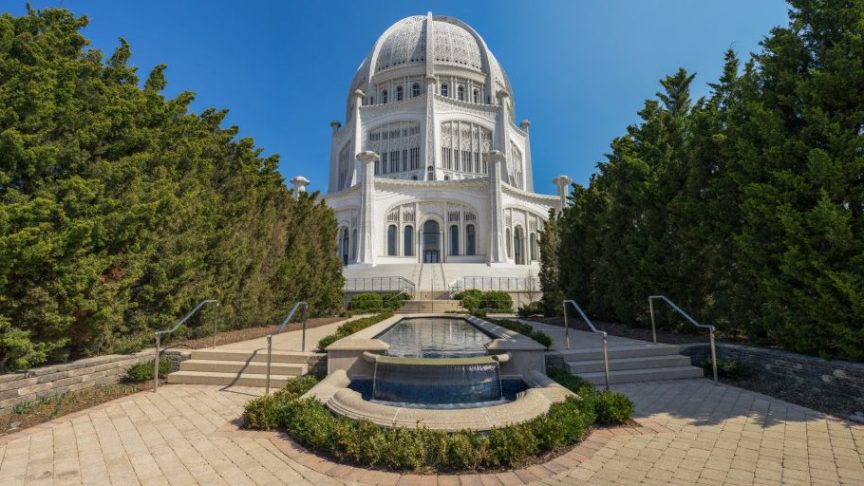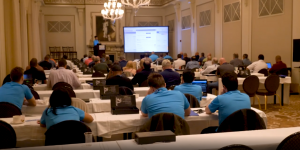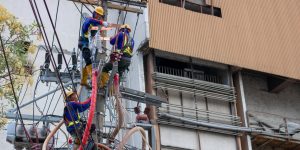The Bahá’í House of Worship for North America just concluded its “Light of Unity” festival. The nine-week event celebrated the birth of the Baha’i Faith’s prophet, Bahá’u’lláh, two hundred years later. While many temple members celebrated the occasion, others reflected on the role their religion plays now that racial prejudice, political strife, rampant materialism, and moral rot has reached a new boiling point across America.
Bahá’í Temple member Hasti Movafaghi says she wondered what it would be like if her prophet was alive in the United States today.

Movafaghi says many of her temple friends share her concerns and wouldn’t be surprised if other Baha’i faith members around the country did too. The National Spiritual Assembly of the Bahá’í’s of the United States recently published a collective statement earlier this year on the subject.

Bahá’í National Center employee Rebecca Rice says her faith embraces people from all walks of life, and emphasized how that philosophy is more important now than ever.

Movafaghi says she hopes that humanity will continue to grow and evolve no matter how uncertain things may seem.

She says that philosophy is easy to understand and hard to achieve, but if we can change ourselves, maybe we can change the world too.
The “Light of Unity” festival finished with an in-person event at the Bahá’í House of Worship for North America located in Wilmette, Illinois. The event included a 30-minute service, an informational slideshow, and a movie called “Light to the World”—dedicated to Bahá’u’lláh’s life and teachings.



